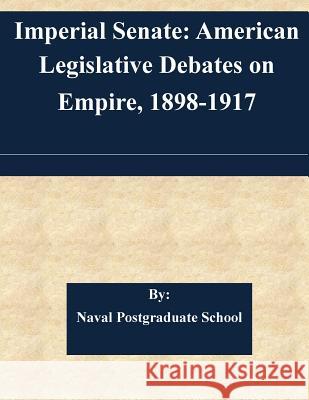Imperial Senate: American Legislative Debates on Empire, 1898-1917 » książka
Imperial Senate: American Legislative Debates on Empire, 1898-1917
ISBN-13: 9781508821960 / Angielski / Miękka / 2015 / 242 str.
Imperial Senate: American Legislative Debates on Empire, 1898-1917
ISBN-13: 9781508821960 / Angielski / Miękka / 2015 / 242 str.
(netto: 57,61 VAT: 5%)
Najniższa cena z 30 dni: 59,66
ok. 16-18 dni roboczych.
Darmowa dostawa!
In 1898, the United States forced Spain to release the colonies of Cuba, Puerto Rico, Guam, and the Philippine Islands. Over the next 20 years, the United States Senate debated whether to keep, how to govern, and finally how to set some of those territories free while making others permanent possessions of the republic. These debates reveal a legislature, and by extension a nation, reevaluating its basic principles and changing place in the world. A review of international relations and domestic politics preceding the Spanish-American War establishes a pattern of legislative deference. Examination of pivotal debates spanning the post-war American imperial period shows how the Senate broke that pattern by seeking an expanded foreign policy role. Each inquiry highlights the effects of partisanship and domestic politics on ostensibly international matters. It is well known that the Senate failed to assert its foreign policy authority over the executive. Yet its efforts to do so casts light on the politics of the period, on how decisions about the acquisition and fate of America's colonies were justified, and on how deeply contested these issue actually were. After extensive debate, the Senate deliberately chose imperialism. This paper explains how and why it did so.
Zawartość książki może nie spełniać oczekiwań – reklamacje nie obejmują treści, która mogła nie być redakcyjnie ani merytorycznie opracowana.











